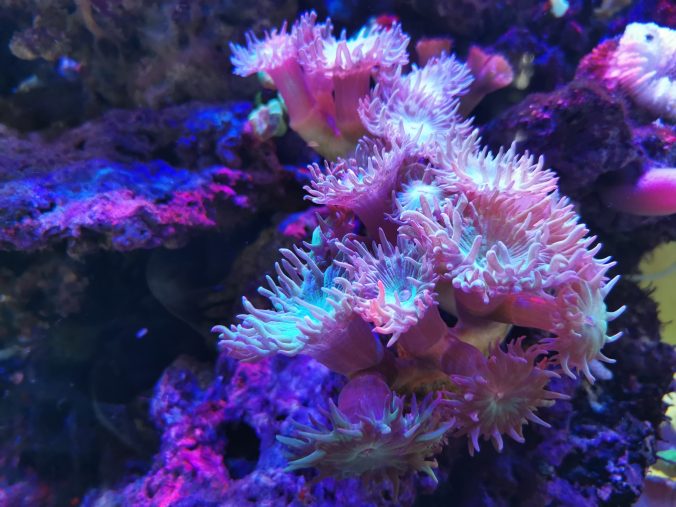Photo by Virginia Tudorancea on Unsplash
The upcoming Dialogue on the Ocean and Climate Change, scheduled to take place Nov. 30 through Dec. 1, 2020 at the 52nd session of the Subsidiary Body for Scientific and Technological Advice (SBSTA), will be the first official discussion under the UNFCCC on how to integrate marine ecosystems into the mitigation of and adaptation to climate change.
Submissions to this Dialogue present an opportunity for non-state actors to voice their findings on how to best integrate the ocean into the goals of the Convention. The Institute for Sustainable Development and International Relations (IDDRI in French) is a Paris-based think-tank, that, as an advocate for sustainable development through effective and equitable natural resource management, submitted their recommendations for increasing ocean action in climate strategies to the Dialogue.
I had the pleasure of speaking with Julien Rochette, director of the Ocean Programme at IDDRI and one of the authors of the recent submission, on how the topic of the ocean has moved through the climate negotiations.
Rochette accredits COP21 and the Paris Agreement as the first step in the integration of the ocean with the climate change regime. While the UNFCCC lists the oceans as a sink of greenhouse gases and asserts that coastal and marine ecosystems should be enhanced, the ocean is not mentioned in the Kyoto Protocol once, and the theme has largely been absent from the main UNFCCC stage. By the end of COP21, however, the ocean had found its way back into negotiations and into the preamble of Paris Agreement: “Noting the importance of ensuring the integrity of all ecosystems, including oceans, and the protection of biodiversity….”
This was not by accident. Small Island Developing States, NGOs, and coastal countries, among others, pushed for this inclusion. Then, they pushed the IPCC to expand their findings on the ocean. The resulting 2019 IPCC Special Report on the Ocean and Cryosphere in a Changing Climate was the second step, according to Rochette, in bringing the ocean into the conversation.
“This report, it’s also the result of movements that started with COP21 – promoted by the ocean community and also by some specific states – to have better recognition of the interrelations between the ocean and climate change,” Rochette said.
Addressing the impacts of climate change on the ocean is an urgent necessity. Already, reduced oxygen levels, harmful algal blooms, and increased frequency of storms threaten resilience of vital coastal ecosystems which millions of people rely on for their livelihoods and billions rely on for food. Ocean acidification threatens calcifiers’ shells and with it, the livelihoods of fishers worldwide. At just one degree of warming, corals bleach.
“Scientists say that in a plus 2-degree world, your marine ecosystem is already impacted, especially coral reefs,” Rochette said. “So that’s why the ideal objective should be 1.5.”
Adding to the urgency, estimates by Climate Action Tracker and Climate Initiative predict that national pledges to reduce emissions-reductions through the Paris Agreement will not be sufficient to reach the 2 degree goal, and will instead amount to an increase in global mean temperature between 2.7C and 3.5C by 2100. Some of Rochette’s colleagues at IDDRI estimate this increase in temperature would multiply present-day risk to the oceans by a factor of 2.2 to 2.5 by 2100.
The third step of integrating the ocean into the climate agenda will be the Dialogue. Rochette said it’s too early to tell if momentum will continue past the event, as some states are not in favor of the ocean becoming a regular issue under the Convention. However, he stressed that it’s not only important to integrate the ocean into climate change policy, but also to integrate climate change into scientific research.
“Let’s take the example of tuna fisheries,” Rochette said, “Tuna fisheries will be very, very impacted by climate change, but currently in the different RFMOs, or Regional Fisheries Management Organizations, there is no formal discussion on how to adapt the consequences to the impact of climate change.”
In terms of IDDRI’s role in climate negotiations, Rochette said that they strive to actively participate in this discussion, both on the publication side and directly through conversations with negotiators. They were particularly active in COP21, but now that both an unofficial dialogue and the official Dialogue are taking place, they have taken a step back to focus on their own projects. These range from generating ocean-based solutions to climate change to strengthening regional governance on the high seas.
Step four, it seems, will be in the hands of the negotiators.
This isn’t the end of the road for IDDRI’s influence on UN regulatory frameworks, but perhaps a refocusing. The Convention on Biological Diversity (CBD) presents additional opportunities for non-party actors to advocate for sustainable management of marine ecosystems in order to meet the CBD’s dual goals to conserve biodiversity and promote sustainable development.
Rochette’s next project is on organizing key stakeholders in the ocean community to identify how to improve the latest draft of the post-2020 global biodiversity framework. This agreement will influence the next 30 years of global environmental governance and its implementation will determine if we achieve the 2050 Vision of “Living in harmony with nature.” As marine environments are under threat and closely tied to human lives, the ocean needs to a be a part of this vision. With the help of the Ocean Programme at IDDRI and many others advocating for the integration of the ocean into negotiations, we may have a chance to slow the impacts of climate change. Yet, we must act now.


Leave a Reply